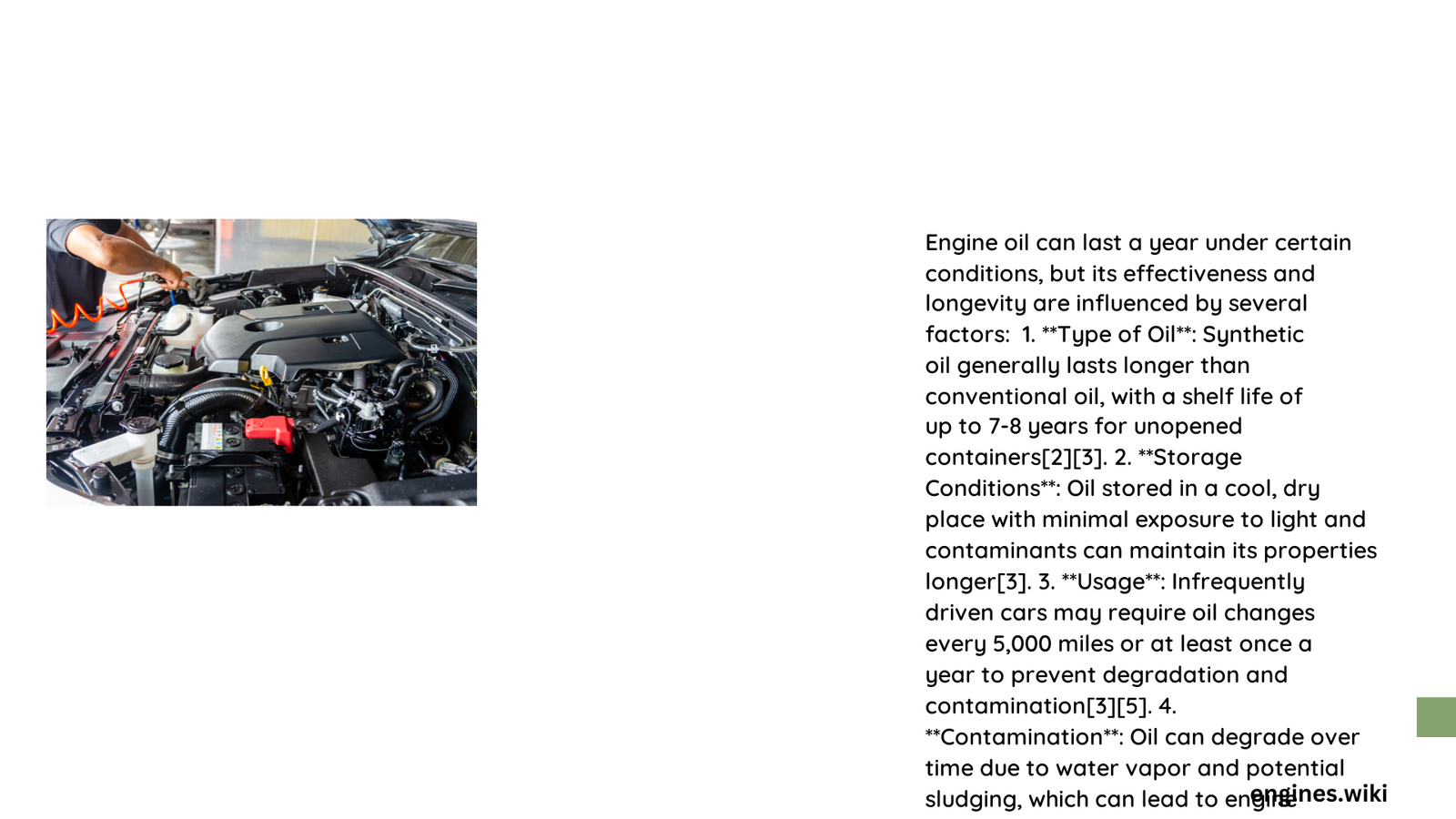Engine oil is a critical component of vehicle maintenance, and many car owners wonder about its storage potential. While engine oil doesn’t expire instantly, its effectiveness can degrade over time depending on storage conditions, oil type, and environmental factors. Synthetic and conventional oils have different shelf lives, with synthetic oils typically maintaining their quality longer due to advanced chemical compositions and resistance to oxidation.
Can Engine Oil Survive One Full Year?
What Determines Oil Longevity?
Engine oil’s ability to last a year depends on several crucial factors:
| Factor | Synthetic Oil | Conventional Oil |
|---|---|---|
| Storage Temperature | More Stable | Less Stable |
| Oxidation Resistance | High | Low |
| Shelf Life | Up to 5 years | 2-3 years |
Key Storage Conditions for Preserving Oil
- Temperature Control
- Ideal storage range: 50°F to 80°F
- Avoid extreme heat or cold
-
Keep away from direct sunlight
-
Container Integrity
- Maintain sealed, original packaging
- Prevent moisture and contaminant exposure
- Store in upright position
How Do Different Oil Types Perform?
Synthetic Motor Oil
Synthetic oils demonstrate remarkable stability:
– Chemical structure resists breakdown
– Maintains viscosity longer
– Can potentially last up to 5 years when stored properly
Conventional Motor Oil
Conventional oils have more limitations:
– More susceptible to degradation
– Shorter effective storage period
– Typically lasts 2-3 years under optimal conditions
Practical Recommendations for Oil Storage
Vehicle owners should follow these best practices:
- Inspect Oil Regularly
- Check for color changes
- Monitor viscosity
-
Look for signs of contamination
-
Storage Environment
- Choose cool, dark locations
- Use original manufacturer containers
- Keep away from temperature fluctuations
Warning Signs of Oil Degradation
Red Flags Indicating Oil Has Expired:
– Thick, dark coloration
– Unusual odor
– Visible particle contamination
– Separation of oil components
Technical Insights
Professional mechanics recommend:
– Never use oil older than recommended shelf life
– Prioritize manufacturer guidelines
– Consider oil’s intended use and storage conditions
Precision Measurement Techniques
Oil Quality Assessment Methods:
– Viscosity testing
– Spectroscopic analysis
– Chemical composition evaluation
Final Verdict: Can Engine Oil Last a Year?

Yes, engine oil can last a year when:
– Stored in optimal conditions
– Kept in sealed, original packaging
– Protected from temperature extremes
– Maintained away from contaminants
Caution: Always consult your vehicle manufacturer’s specific recommendations and perform visual/physical inspections before use.
Pro Tips for Extended Oil Preservation
- Purchase smaller quantities
- Track purchase dates
- Store in temperature-controlled environments
- Use manufacturer-recommended storage practices
Conclusion
Understanding engine oil’s shelf life requires careful consideration of multiple factors. While engine oil can potentially last a year, its effectiveness depends on storage conditions, oil type, and environmental influences.
